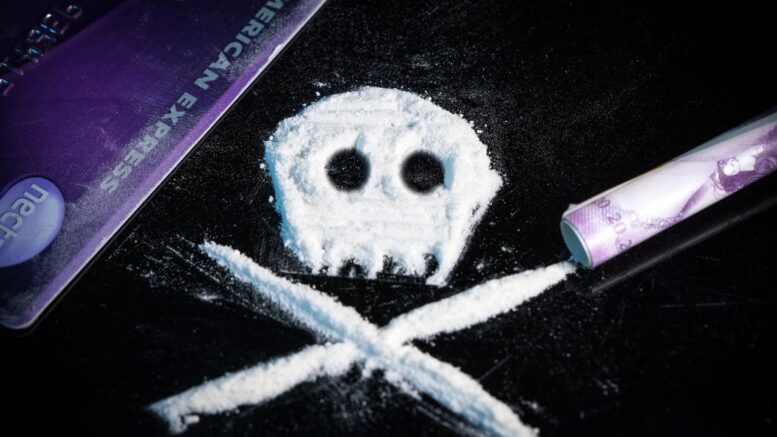Cocaine drug addiction is a serious worldwide public health problem that isn’t going away any soon. Cocaine abuse is highly addictive and associated with substantial morbidity and mortality. In the UK, a recent study revealed that the second most commonly used drug among adults aged 16 years to 59 years was powder cocaine, after cannabis.
Many cocaine users don’t describe themselves as addicts and don’t see their drug intake as a problem unless they get caught. While in reality, cocaine is far from a silly weekend habit and can turn into addiction really fast. It may be because cocaine is easily available as a social lubricant and delivered to the doorstep in many areas.
Cocaine addiction is severe as it takes a toll on your mental and physical health alike. And no medications have been approved yet for the treatment of cocaine addiction. However, behavioural therapies and self-help groups such as cocaine rehab and other drug treatment centres can help.
Before moving forward to how one can cure cocaine drug addiction, let us understand a little more about cocaine’s effects, causes, symptoms, risks, and more.
COCAINE AND ADDICTION
Cocaine is an addictive drug extracted from the Coca plant leaves, a plant native to South America. Also known as coke, flake, snow, blow, crack, and C, cocaine is highly addictive and doesn’t mean recreational use (it’s illegal). Cocaine addiction comes under one of the most severe drug addictions because it affects the neuropathways in the brain and increases alertness and energy in the body. While it can seem mild in the beginning, you will soon start experiencing a craving for cocaine, both physically and mentally.
In addition, cocaine can be consumed in various ways. While many people inhale cocaine, others inject it into the vein, smoke it, or insert it via genital or rectal routes. Any of these methods can cause addiction.
EFFECTS OF COCAINE
Cocaine can have stimulating effects on the body. When consumed in heavy amounts, it can increase the dopamine levels in the brain, which can cause the user to feel euphoric. It also reduces your desire to sleep and eat. Hence, the intake of cocaine in greater amounts can disrupt the user’s physical and mental health.
Psychological effects of Cocaine:
- Hallucinations
- Anxiety
- Depression
- Aggression
- Panic
- Paranoia
- Irritation
- Repetitive or abnormal behaviours
- Impaired judgment
Physical effects of Cocaine:
- Chest pain
- Headache
- Nausea
- Seizure
- Increased heart rate
- Stroke
- Unhealthy weight loss
- Abdominal pain
- Heart attack
WHAT CAUSES COCAINE ADDICTION?
Cocaine use, especially repetitive use, affects neurological systems in the brain. As a result, it impairs the user’s ability to make decisions, affects memory, makes the user feel exhilarated, and can harm the ability to resist urges, making it harder to quit.
It also enhances the extracellular concentrations of neurotransmitters like dopamine, norepinephrine, and serotonin and blocks their transport. This neuroadaptation can cause both increased and decreased drug response. For example, when users ingest cocaine frequently, they can develop a cocaine intolerance, which means the user has to take more cocaine than usual to feel its effects.
WHO STAYS AT RISK FOR COCAINE ADDICTION?
Anyone who consumes cocaine regularly remains at risk of becoming an addict. Some other factors that can increase the risk of cocaine addiction in an individual include:
- Alcohol or other drugs addiction
- Mental illnesses, such as depression, and
- Family history of cocaine

SYMPTOMS OF COCAINE DRUG ADDICTION
Some of the symptoms of cocaine drug addiction are:
- Psychosis and hallucinations
- Disappearing on binge sessions
- An inability to stop or reduce the drug intake
- Withdrawal symptoms, when drug use stops
- Drug intolerance
- Spending excessive time and money on cocaine
- Negative personal relationships and employment
If these symptoms get excessive, there arises an immediate risk of overdose. According to a report by National Institute on Drug Abuse, 14,666 people died of a cocaine-involved overdose in 2018 alone.
COCAINE DRUG ADDICTION TREATMENT
Cocaine addiction is more complex than you think. It is a disease with physical, social, mental, familial, and environmental factors. While many believe that cocaine addiction is harder to overcome, it is not necessarily true. There are no approved medications, but seeking professional help from a licensed psychiatrist, psychologist, mental health worker, or counsellor can be effective. They will assess your situation and suggest different treatment options according to the severity.
Some treatment options that can help includes:
Outpatient Treatment Setting
Outpatient therapy or drug addiction treatment can help individuals address their problems in a more personalized way. In this form of treatment, individuals with cocaine use disorders live at a home or community centre and travel to the therapy centre or treatment facility every day. Outpatient treatment setting includes psychosocial treatment such as individual and group therapy.
Also, the intensity of outpatient therapy varies, depending on the individual basis. While some individuals can see progress by coming just for one or two hours a week, others have to attend the therapies up to six hours a day a few times a week. Outpatient treatment can last for months.
Residential Treatment Setting
If outpatient treatment fails, residential treatment programs can help you overcome drug addiction. Residential treatment programs last for several weeks to a year and include many opportunities from which an individual can learn to overcome drug addictions. Some of these opportunities include vocational therapy, medications, and psychological support.
A residential program will help individuals to get the support of their peers and counsellors at their fingertips. It also helps them to stay away from potentially triggering situations that can cause cocaine use. It also gets them out of unhealthy habits, and push them to be more accountable for staying sober. Also, this treatment option is recommended for those who suffer from multiple substance abuse, mental disorders, and other health disorders.
Established Treatment or Therapy Approaches
Cognitive-behavioural Therapy
Cognitive-behavioural therapy is an individual or group therapy that individuals can learn in many outpatient and residential treatment settings. In this form of therapy, drug users identify the situations, thoughts, or feelings that used to trigger them to do drugs in the beginning. They can learn new coping strategies or constructive ways to deal with their cravings in cognitive-behavioural therapies.
Contingency Management
In this approach, individuals get rewards for meeting goals related to stopping drug use. A feasible and promising treatment option, a contingency management program helps individuals to develop the skills they need to find their triggers.
Medication Assisted Treatment
To date, no medications designed can treat cocaine addiction, but certain antidepressants or stimulants may be given to the patients to help them treat cravings and withdrawal symptoms, and counteract the pleasurable feelings. Also, effective medications, if developed, could be an especially important treatment option.
Alternative Therapies
Some of the alternative therapies that might be helpful in treating cocaine’s ill effects include exercise, acupuncture, hypnosis, and herbs. Also, there are no research studies published yet that can guarantee the effectiveness of these techniques on cocaine addiction.
WITHDRAWAL SYMPTOMS OF COCAINE
Withdrawal of cocaine can result in intense and instant discomfort. Addicted users who stop their cocaine intake can feel uncomfortable and experience certain side effects, such as:
- Agitation
- Anxiety
- Depression
- Hostility
- Fatigue
- Paranoia
- Sleep disturbances
All these side effects can cause drug cravings again. In this case, the drug users need the support of their family members, friends, treatment facilities, or support groups that can help them get over this initial crash.
Talk to your healthcare provider or go online to find a support group near you.
Get Over Cocaine Addiction
Cocaine drug addiction is a critical illness that can affect a person’s body, mind, and well-being and requires extensive treatment. Hence, a cocaine rehab might be the first option to consider when an individual is likely to get rid of their unhealthy habits. The drug addiction treatment will help them restore their sanity. If you or your loved ones’ need help to overcome cocaine addiction, this is the time. Reach out to your nearest support group or explore drug treatment centres online to get started.
